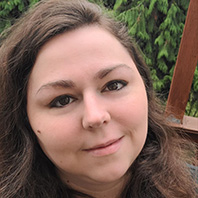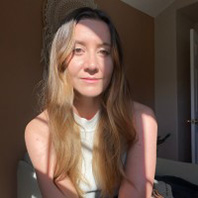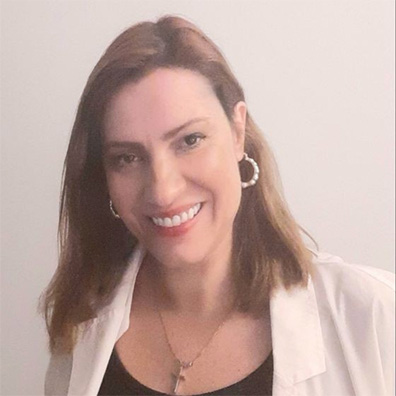Types of Grief at End-of-Life: Complicated, Anticipatory & More

It’s hard to imagine a life without a loved one, and the grieving process can begin before the loss even occurs. Each form of grief, including complicated, anticipatory, disenfranchised, and collective, comes with its own set of challenges and characteristics.
Key Takeaways
- The different types of grief include complicated, anticipatory, disenfranchised, and collective.
- Grief can begin before a loss even occurs.
- Proper support and coping mechanisms can help you grieve and recover.
Understanding Grief Before & After a Loved One’s Death
Grief is a complex and profound experience of loss, and it can begin before the loss occurs. For instance, if a loved one is diagnosed with a terminal illness or you anticipate their death, it’s normal to begin grieving before they die.
It’s important to understand that grief isn’t the same for everyone, and there isn’t one single right way to grieve. Everyone goes through their own process, and the support of loved ones is often instrumental in recovery.
Complicated Grief
Complicated grief is an intense, prolonged grief that interferes with daily functioning. It can be caused by the sudden, unexpected, or violent loss of a loved one, the death of a child, or the death of someone you were close to or dependent on, like a spouse. Unlike normal grief symptoms, which gradually improve, complicated grief lingers or worsens with time when left alone.
Who Experiences Complicated Grief?
Also called persistent complex bereavement disorder, complicated grief affects those who struggle to move forward in life after a significant loss. While the first few months resemble typical grief, you remain in the heightened state of mourning that prevents healing. It occurs more frequently in older females but can happen to anyone[1].
How to Cope With Complicated Grief
Coping with complicated grief begins with self-care and easing back into daily routines. Exercising, sleeping, and socializing all benefit physical and mental well-being[2].
Your doctor may recommend a form of psychotherapy called complicated grief therapy in an individual or group setting[3]. It involves learning about complicated grief and developing coping mechanisms such as:
- Adjusting to loss and learning to redefine your goals in its wake
- Processing thoughts and emotions in a healthy way
- Developing new coping skills to assuage feelings of blame or guilt, such as holding imagined conversations with the deceased and retelling their story to become less distressed by thinking about them
Other psychotherapies, such as cognitive behavioral therapy (CBT), may also alleviate persistent symptoms.
Research indicates that approximately one in 10 bereaved individuals may develop complicated grief. Left untreated, this condition can persist for a long time and may increase the risk of developing substance abuse, suicidal thoughts, sleep problems, heart diseases, and cancer.
Dr. Brindusa Vanta, MD
Anticipatory Grief
Anticipatory grief is an emotional response to an impending loss. It differs from other forms of grief because the loss has not yet occurred but is believed to happen in the foreseeable future.
Who Experiences Anticipatory Grief?
Although not everyone will, anyone anticipating a loved one’s death can experience this type of grief. It can also affect those who have received terminal diagnoses and must grapple with the knowledge that their death may be imminent. It’s common in family members, close friends, and caregivers[4].
How to Cope With Anticipatory Grief
People often cope with end-of-life grief in four stages[5]. However, not everyone will go through them all in order or experience all stages:
- Acceptance: You recognize that death is unavoidable and may face feelings such as sadness, denial, anger, or even depression.
- Reflection: You start reconciling your emotions and may experience feelings of regret, guilt, or remorse regarding your time spent with your loved one.
- Rehearsal: You start considering how you’ll feel during or after the loss occurs.
- Imagining the future: You start visualizing what life will be like after loss.
Open up and discuss how you feel with friends and family. Allow yourself to experience your emotions and engage in self-care. Joining support groups or seeking help from a licensed therapist may also provide relief.
There are few well-known theories that attempt to explain anticipatory grief. For example, Lindemann sees it as an inevitable part of facing impending death, Rando views it as a multidimensional process assisting in grieving after a loved one’s passing, and sociologists highlight its dependence on the social context of the individual.
Dr. Brindusa Vanta, MD
Disenfranchised Grief
Disenfranchised grief refers to grief that isn’t openly acknowledged, socially mourned, or publicly supported[6]. Also known as hidden grief, this type is commonly accompanied by a feeling that your grief is unwarranted or less meaningful. This is often because the individual fears that their grief isn’t valid because of why they’re grieving.
Who Experiences Disenfranchised Grief?
People often experience disenfranchised grief when their loss goes unacknowledged. It may impact people who have experienced the death of:
- An LGBTQ+ partner who wasn’t acknowledged publicly
- A casual friend, online friend, or ex-partner
- Someone you never knew, like an absent parent or sibling
- A coworker, student, patient, or honorary relative
- A pet
- An imprisoned loved one
- An unborn child
How to Cope With Disenfranchised Grief
Disenfranchised grief often includes typical feelings of grief. However, you may feel guilt or doubt because those around you dismiss your feelings.
Give yourself time and seek support from those who understand. You may also create a mourning ritual or seek support groups, where you’ll find people who understand your loss.
Collective Grief
Collective grief is shared by a community or group rather than an individual experience[7]. The losses create life-changing experiences and feel like they alter the future.
Who Experiences Collective Grief?
Collective grief may be experienced by anyone in a community after a public tragedy, such as a natural disaster, an act of violence, or a pandemic. It impacts people who may not have a personal connection to the deceased but feel the shared loss and join in communal mourning.
How to Cope With Collective Grief
Participating in community support events, memorials, or rituals can help provide a sense of connection and mourning following a public tragedy. Support groups, whether online or in person, may focus on helping you cope with your grief.
Grieving Comes in All Sorts of Forms
Grieving a loss or future loss is a normal human experience. However, if your grief remains persistent or you feel like you’re struggling, help is out there. Grief support groups, licensed therapists, and your social network can help you get through this difficult time.

Written by Serena Tanner
Serena Tanner attended the University of Washington, where she earned a degree in philosophy after many detours delving into human rights, law, psychology, and social work. Health and holistic wellness topics continue to hold a special place in her heart. When she's not reading or writing, she can be found exploring the Pacific Northwest with her two children and dogs.

Edited by Alyssa Hill
Alyssa Hill is an experienced editor and health writer. She holds an M.A. in journalism from the University of Arizona and is also a certified somatic practitioner. A former content manager for multiple start-ups in the marketing and health/medical industries, Alyssa has extensive experience writing medically accurate and well-researched content, editing articles for clarity and SEO, adhering to strict guidelines, and ensuring all content is up to standards.

Subject Matter Expert Brindusa Vanta, MD
Dr. Brindusa Vanta is a healthcare professional, researcher, and medical subject matter expert . She earned her MD degree from "Iuliu Hatieganu" University of Medicine, Romania. She has a special interest in mental health and has collaborated with psychologists and other mental health practitioners on various research projects focused on therapies to manage depression, age-related cognitive decline, trauma and stressor- related conditions.
Sources
Mayo Clinic. (n.d.). Complicated grief: Symptoms and causes. Sourced from https://www.mayoclinic.org/diseases-conditions/complicated-grief/symptoms-causes/syc-20360374
Cedars-Sinai. (n.d.). Understanding prolonged grief disorder. Sourced from https://www.cedars-sinai.org/blog/understanding-prolonged-grief-disorder.html
Mayo Clinic. (n.d.). Complicated grief: Diagnosis and treatment. Sourced from https://www.mayoclinic.org/diseases-conditions/complicated-grief/diagnosis-treatment/drc-20360389
Cleveland Clinic. (n.d.). Grief. Sourced from https://my.clevelandclinic.org/health/diseases/24787-grief
Cleveland Clinic. (n.d.). Dealing with anticipatory grief. Sourced from https://health.clevelandclinic.org/dealing-with-anticipatory-grief
NPR. (2021, June 2). The importance of mourning losses, even when they seem small. Sourced from https://www.npr.org/2021/06/02/1002446604/the-importance-of-mourning-losses-even-when-they-seem-small
McSilver Institute for Poverty Policy and Research. (n.d.). Resources for helping children cope with collective grief. Sourced from https://mcsilver.nyu.edu/resources-for-helping-children-cope-with-collective-grief/